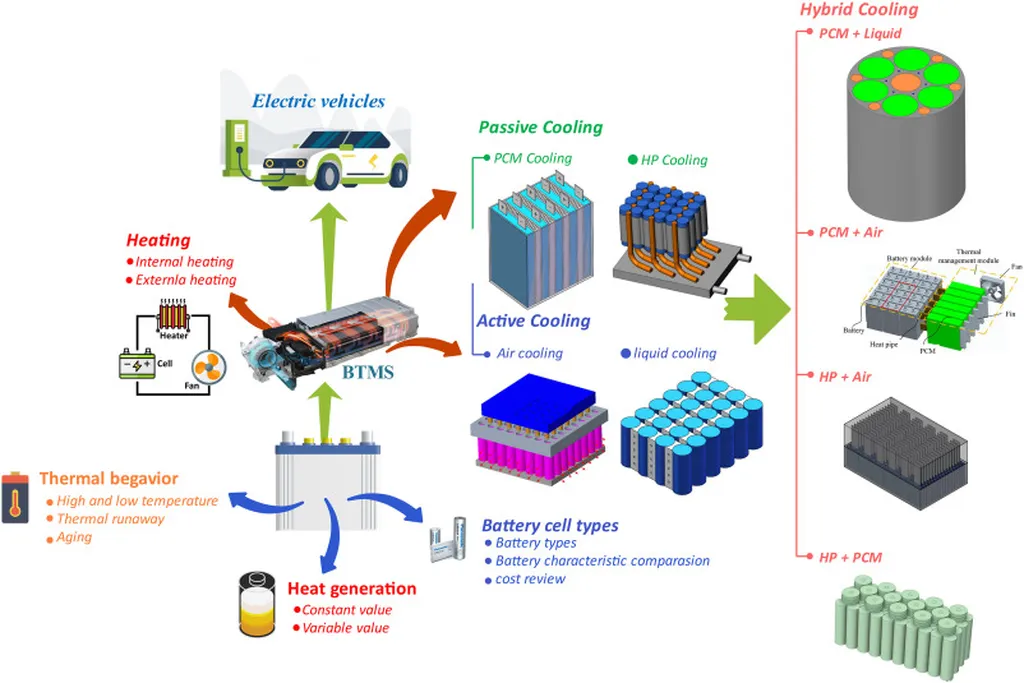In the rapidly evolving world of energy storage, managing the heat generated by large-scale lithium-ion battery packs has become a critical challenge. A recent study published in the journal *Applied Sciences* (formerly known as *Applied Sciences*) offers a promising solution: a novel single-phase immersion cooling system designed to enhance the thermal management of high-capacity battery packs. The research, led by Jiajun Hu from the College of Mechanical and Power Engineering at Nanjing Tech University, could have significant implications for the energy sector, particularly in applications requiring robust and efficient battery cooling.
The study focuses on a large-capacity battery pack with a total capacity of 52.249 kWh, consisting of 52 cells. Traditional cooling methods, such as liquid cooling and static immersion, have been the norm, but they often fall short in maintaining optimal temperatures for large-scale systems. Hu and his team designed a dynamic immersion cooling system that outperforms these conventional methods. “Our research found that compared with traditional liquid cooling and static immersion liquid cooling, the overall cooling performance of the dynamic immersion cooling system was significantly improved,” Hu explained. The system reduced the maximum temperature by up to 7.8 °C and the maximum temperature difference within the pack by up to 5.5 °C, indicating a more uniform temperature distribution.
One of the key findings of the study is the impact of the aperture of the flow distributor on cooling performance. The team discovered that an aperture of 4 mm provided the best cooling effect. Additionally, increasing the flow rate of the cooling liquid further enhanced the cooling performance, although the rate of temperature decrease gradually tapered off. The type of cooling liquid also played a crucial role; deionized water proved to be the most effective, while ethyl silicone oil was the least effective.
The implications of this research are far-reaching. As the demand for large-scale energy storage systems grows, particularly in renewable energy integration and electric vehicle applications, efficient thermal management becomes paramount. Hu’s study provides a valuable reference for designing immersion liquid cooling systems that can handle the thermal challenges of high-capacity battery packs. “The novel single-phase immersion cooling system developed in this study contributes to enhanced temperature uniformity and improved system safety,” Hu noted.
The study’s findings could pave the way for more efficient and safer battery systems, ultimately benefiting industries that rely on large-scale energy storage. As the energy sector continues to innovate, research like this will be crucial in shaping the future of battery technology and its applications.

